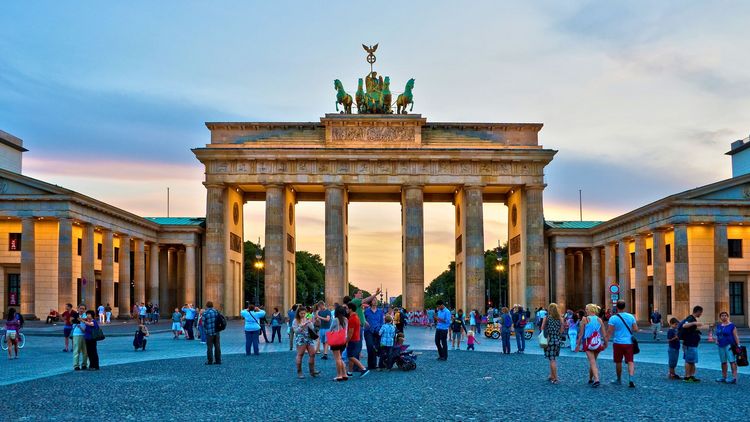Political education often leads a niche existence. The German reunification offers a good opportunity to demonstrate the achievements of democracy, says Tonio Oeftering, expert for political didactics, on the occasion of the 3rd of October.
Prof. Oeftering, we are currently celebrating 30 years of reunification in Germany. Why should efforts in political education pay more attention to this topic?
The reunification is a positive point of reference in our collective memory. This is because the peaceful revolution is one of the great achievements after the Second World War. Of course, this is not intended to supersede the negative point of focus on National Socialism from our remembrance. The experiences of the Nazi era are central to German history. But the reunification is a positive history of democracy that shows what is possible when people take to the streets peacefully for their freedom and rights. In political lessons at schools or in extracurricular political education, reunification also offers the opportunity for directly comparing political systems. What kind of dictatorship was the GDR actually? What were the achievements of democracy and the rule of law that did not exist in the GDR? These are topics we can take up on this occasion.
According to the recently published annual report on the state of German unity, satisfaction with democracy in Germany is still lower in the Eastern Länder than in the Western ones. What can be the reason for this?
The reasons for these differences are complex. It may be because the political cultures in East and West Germany have developed differently. In addition, although living conditions in both parts of Germany have become similar there are still differences. East Germans, for example, are underrepresented in company management or in leading political positions. Especially in the East, some still feel like second-class citizens whose previous life experiences have been devalued. This has produced disappointments that have not been channeled into good directions. Many feel left behind.
Apparently, according to the report, there is also a lack of trust in politics, especially in the East...
There is certainly cause for criticism. Politicians have a responsibility not to forget the people and to make policies that are trustworthy – precisely because many feel left behind. Moreover, political forces like the AfD or right-wing movements are deliberately trying to undermine trust in democracy and brand our government as dictatorial. The choice of words, such as "old parties" or "lie press", is based on National Socialist terminology. Democracy, as we achieved it in the years of reunification, is discredited by people who have a deliberate strategy. But how do these groups act? How do they speak and what are their real interests? The task of political education is to look at this and to show the advantages of democracy.
Is much of what we are experiencing today also due to a lack of education?
Yes, political education is often very deficient – in East and West Germany. But especially in the East there is little knowledge, for example about the rule of law. And the GDR dictatorship is often played down. The basic problem is that political education leads a niche existence. This is scandalous against the background of right-wing populist and anti-democratic developments in society. In schools, political education is only minimally represented in the curricula, as studies by the University of Bielefeld regularly show in their "Ranking of Political Education". Moreover, politics is one of the subjects that is most frequently taught by teachers trained outside the subject area. And things are no better in extracurricular education - many activities no longer exist because the institutions are fighting for their existence. However, good political education requires a reliable and long-term structure. Here, there is a clear gap between aspiration and reality. After all, the expectation of political education is that it will turn young people into responsible citizens who can make informed decisions.
What should be different here?
Teaching should not only comprise more hours, but it is also important that there is good and sound teacher training. This applies not only to the politics teachers themselves, but actually to all teachers – especially when democratic values and attitudes are at stake. In my opinion, it is a task for the whole school to teach democracy. Thus, we need good subject teaching, but it is also up to the schools themselves. The anniversary of German unity shows how urgent this is. We need political education in order to keep the success story of reunification in mind and at the same time to be able to face the challenges arising from the tasks of reunification that have not yet been completed.
Interview: Constanze Böttcher




